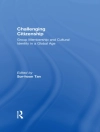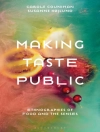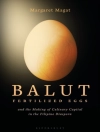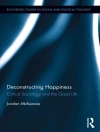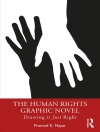What is Leisure Studies? Who are the key figures in the field? How can we evaluate the relevance of concepts in the field?
This is the first full length Dictionary of Leisure Studies. It examines the key concepts, assesses the work of central figures and helps students zero-in on essential issues and conceptual distinctions.
The Book:
• Provides an unprecedented critical survey of the field
• Offers students authoritative, comprehensive accounts of the basic concepts and leading figures
• Provides students with core resources to write essays and pass exams
Written by teachers experienced with the needs of undergraduates and postgraduates in the field, the book will be quickly recognized as a vital asset in making sense of Leisure Studies.
Jadual kandungan
A and B Analysis
Abnormal Leisure
Acculturation
Action Analysis
Action Research
Addictions
Adorno, Theodor (see Critical Theory)
Aesthetics
Ageing and Leisure
Agency see Structure and Agency
Alienation
Amateur and Amateurism
Animal Rights
Anomie
Ansoff Matrix
Art (see Aesthetics; Community Leisure; Modernism; Postmodernism)
Asceticism
Assets, Liabilities and Capital
Audiences
Authenticity
Baudrillard, Jean
Bauman, Zygmunt
Binary Oppositions
Birmingham School, The
Blood Sports
Body/Bodies see Leisure Bodies
Bohemians
Boston Matrix
Bourdieu, Pierre
Branding, Brand Awareness and Brand Image
Budgeting
Bureaucracy
Business Environment
Capital (see Habitus, Field and Capital; Social Capital)
Capitalism
Carnivalesque
Castells, Manuel (see Network Society; Three Sector Model)
Casual Leisure (see Crafts and Craftsmanship; Serious Leisure; Consumption)
Catharsis and Cathexis
Celebrity
Civil Society
Civilizing Process (see Elias, Norbert)
Class
Class Consciousness (see False Consciousness)
Collective Consumption (see Three Sector Provision of Leisure)
Collecting/Collectors (see Hobbies)
Commodity Fetishism
Communication
Community
Community Action
Community Leisure
Comparative Method (or Comparative Analysis)
Compulsory Heterosexuality
Computer Games (see Digital Games)
Consumer Behaviour and Consumer Relationship Marketing
Consumer Culture (see Consumer Society)
Consumer Society
Consumption
Content Analysis
Conversational Analysis
Cool
Cost Accounting
Crafts and Craftsmanship
Crime (see Deviance)
Critical Theory
Cruising
Cultural Capital
Cultural Intermediaries
Cultural Omnivores
Culture
Cyberculture
Deadweight Expenditure
Decentring Leisure
Deconstruction
Deem, Rosemary (see Women′s Leisure)
Demand
Demand for Health Model
Desire
Deviance
Digital Gaming
Dionysian Leisure
Discourses see Discursive Formations
Discursive Formations
Disneyization
Distinction
Dominant Ideology (see Ideology)
Double-entry bookkeeping
Dromology and Speed
Drugs see Addiction
Dunning, Eric (see Elias; Football Hooliganism; Mimesis; Rojek; Sport)
Economic Benefit of Hosting Major Sport Events
Economic Impact of Hosting Major Sport Events
Edgework
Elasticity
Elias, Norbert
Enjoyment and Fun (see Dionysian Leisure; Fantasy Leisure; Hedonism; Pleasure)
Enthusiasms (see Community Leisure; Crafts and Craftsmanship; Hobbies)
Environment (see Leisure and the Environment)
Ethics
Ethnography
Ethnomethodology
Event Management
Everyday Life
Extreme Leisure
False Consciousness
Fans
Fantasy Leisure
Fanzines
Fashion
Feminism
Figurations/Figurationalism (see Elias, Norbert)
Financial and Management Accounting
Financial Health and Ratio Analysis
Financial Statements
Focus groups
Flâneurs, Flâneurie and Psychogeography
Flow
Folk Devils and Moral Panics
Football Hooliganism
Foucault, Michel
Frankfurt School, The (see Critical Theory)
Free Time
Freud, Sigmund
Full Time Equivalent Jobs
Functionalism
Gambling
Game Theory
Gatekeepers
Gender (see Feminism and Women′s Leisure)
Giddens, Anthony
Globalization
Goffman, Erving
Governmentality
Habitus, Field and Capital
Hall, Stuart (see Birmingham School)
Happiness
Hawthorne Effect (see Observations)
Hedonism
Hegemonic Masculinity (see Masculinity and Masculinities)
Hegemony
Heritage
Hexis (see Habitus)
Hobbies
Hoggart, Richard
Household Production Function Approach, The
Huizinga, Johan (1872-1945) (see Play)
Human Resource Management
Identity
Ideology
Income-Leisure Time Trade Off and Timing Dating
Individualization
Intertextuality
Interviews
′Into′, the
Invisible Exports
Involvement and Detachment
Leisure
Leisure and the Environment
Leisure and the Life Course
Leisure as a Value-Sphere
Leisure Bodies
Leisure Class
Leisure Constraints (see Ageing and Leisure; Class; Racism and Leisure; Unemployment, Leisure in; Women′s Leisure)
Leisure Education
Leisure Experience (see Happiness; Leisure Life-World; Pleasure)
Leisure, History of (see Asceticism; Leisure; Sport; Sportization; Work Ethic)
Leisure in the Community
Leisure Life-Style
Leisure Life-World
Leisure Marketing
Leisure, Philosophical Bases of (see Catharis and Cathexsis; Extreme Leisure; Happiness; Hedonism; Leisure; Mimesis; Pleasure)
Leisure Policy
Leisure Society
Leisure Studies
Life Course (see Leisure and the Life Course)
Life-Style (see Leisure Life-Style)
Liminality
Liquid Modernity
Management Styles
Market Positioning and Market Segmentation
Marketing (see Leisure Marketing)
Marketing Mix for the Leisure Industries
Marxism
Masculinity and Masculinities
Mass Culture (see Popular Culture)
Mass Media
Mass-Observation
Mc Donaldization
Methodology
Mimesis
Modernism
Modernity
Monopolistic competition
Moral Panics (see Folk Devils and Moral Panics)
Motivation
Multiplier Analysis
Neo-classical analysis
Neo-Marxism see Marxism
Neo-Tribes
Network Society
New Social Movements
Non-Participant Observation (see Observation)
Non-Place
Nostalgia
Observation (Participant and Non-Participant Observation)
Oral/Life History
Overworked American Thesis, The (see Schor, Juliet B)
Paradigms
Parker, Stanley (see Work-Leisure)
Participant Observation (see Observation)
Performativity
Pilot Study
Play
Play Ethic
Pleasure
Policy (see Leisure Policy)
Popular Culture
Postmodernism
Pornography
Postcolonialism see Acculturation
Postmodernism
Postmodernity
Power
Profit and Utility Maximisation
Public and Private Goods
Qualitative Research
Quality of Life see Well-being
Quality Systems
Quantitative Research
Queer Theory
Questionnaires
Racism and Leisure
Rational Recreation (see Recreation)
Recreation
Religion
Retirement, Leisure in (see Ageing and Leisure)
Risk Management
Risk Society
Roberts, K. (see Decentring Leisure; Leisure and the Life Course; Well-being; Youth)
Rojek, Chris
Sampling
Schor, Juliet B.
Self, The (see Identity)
Semiotics/Semiology
Serious Leisure
Sex
Sexual Exploitation
Sexuality (see Compulsory Heterosexuality and Masculinity and Masculinities and Queer Theory)
Shopping
Social Capital
Social Class see Class
Social Control
Social Network Analysis
Spectacle
Sport
Sportization
Status
Stebbins, Robert A. (see Amateur and Amateurism; Hobbies; Serious Leisure; Well-being)
Structure and Agency
Structure of Feeling
Subcultures
Supermodernity (see Non-Place)
Supply
Surveillance
Symbolic Interactionism
Taste (see Distinction)
Theming
Third Way
Three Sector Provision of Leisure
Time Budget Diaries
Total Quality Management
Tourism
Tourist Gaze (see Tourism)
Training and Development and Appraisals
Unemployment, Leisure in
Veal, Tony (see Leisure Life-Style; Leisure Studies)
Veblen, Thorstein Bunde
Violence
Video Games see Digital Gaming
Virtual Leisure
Volunteers and Volunteering
Weber, Max (see Asceticism; Bureaucracy; Capitalism; Leisure as a Value-Sphere; Mc Donaldization; Status; Work Ethic)
Weisbrod′s Hypotheses
Well-being
Women′s Leisure
Work Ethic
Work-Leisure
Youth
Zombie Categories
Zones
Mengenai Pengarang
Garry Crawford is a Professor of Sociology at the University of Salford. His research and teaching focus primarily upon audiences, media and consumer patterns, and most specifically, sport fans and video gamers. He has published numerous papers and books, including ‘Consuming Sport’ (2004) and ‘Video Gamers’ (2012). Garry is Director of the University of Salford Digital Cluster, Publications Director of the British Sociological Association, and review editor for Cultural Sociology.


